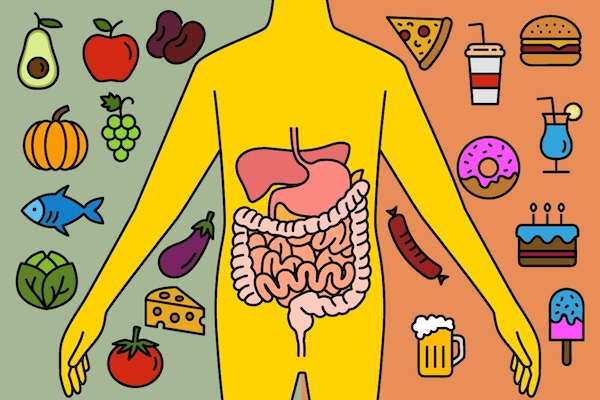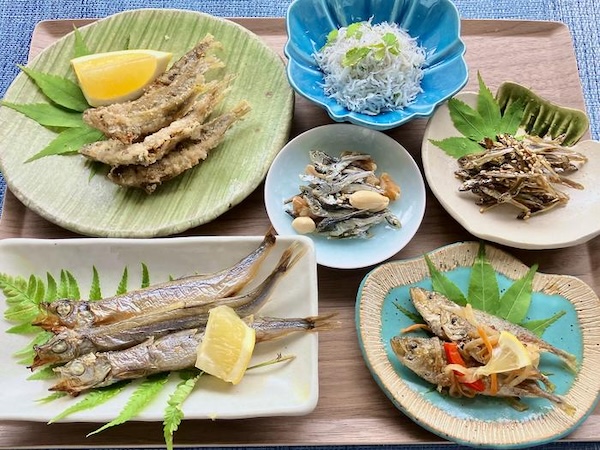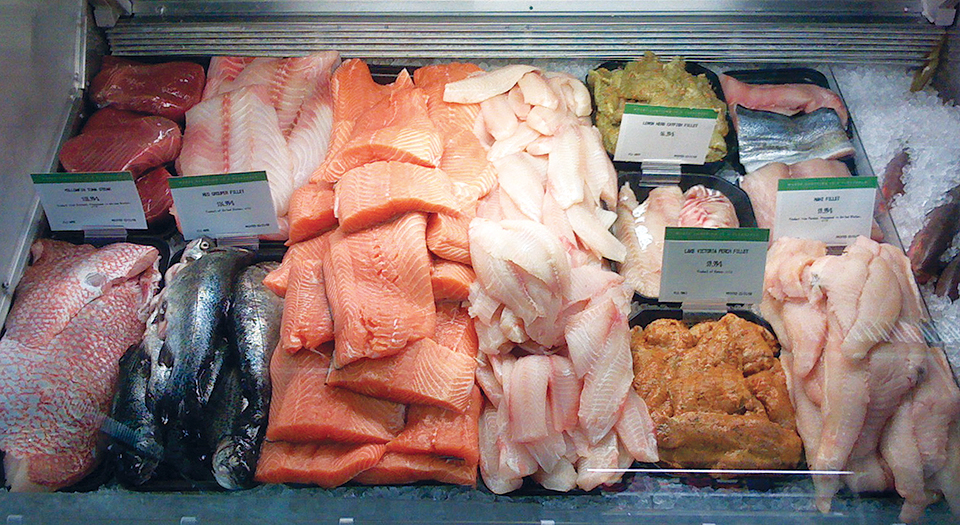Three new studies show eating more fish, alongside other healthy foods, may cut the risk of gastrointestinal cancers and rheumatoid arthritis

A growing body of research highlights the health benefits of a seafood-rich diet, with new studies indicating that regular fish consumption may offer protection against arthritis and certain cancers.
“We’ve identified many direct links between poor diet choices and digestive cancers,” said Dr. Yohannes Melaku, senior author and nutritional epidemiologist at the Flinders Health and Medical Research Institute (FHMRI). “Importantly, we found that a diet high in healthy fats and vegetables whilst limiting the consumption of sugars and alcohol could potentially reduce the risk of bowel and other cancers.”
Gastrointestinal (GI) cancers, including those of the esophagus, stomach, pancreas, bowel and rectum, cause one in four cancer cases and one in three cancer deaths worldwide. Two studies conducted by Flinders University reveal that a diet emphasizing fish, alongside fruits, vegetables, whole grains, legumes and dairy, may significantly lower the risk of gastrointestinal cancers, including bowel cancer. The research also suggests that this type of diet can improve outcomes for people who have these diseases.
“Unhealthy dietary patterns, marked by high consumption of red and processed meats, fast foods, refined grains, alcohol and sugary beverages, present a worrying relationship with an increased risk of GI cancers,” said Melaku. “The emphasis on fibre and healthy fats should be an integral part of everyone’s diet.”
While diet shows promise in preventing or delaying some diseases, the researchers emphasize the need for more studies to understand its full impact on cancers. They also note that diet is only one part of overall health and well-being, which is influenced by many factors.
“Having a healthy diet is one of the simplest ways to improve our overall health and reduce the risk of diseases including cancers,” said Melaku. “Our studies demonstrate that nutrition education and promoting healthy eating patterns could be pivotal in reducing GI cancer risks and improving patient outcomes.”
Omega-3 fatty acids linked to reduced cancer risk, highlighting potential benefits of fish oil
Meanwhile, a new systemic review of 30 studies involving nearly 10,000 people with rheumatoid arthritis, conducted between 2000 and 2024, sheds light on how diet affects the disease. The study examined 32 food groups, drinks and nutrients, finding strong evidence that certain foods – like oily fish and Vitamin D – may help stave off the disease. The researchers concluded that eating more oily fish, along with fruits and cereals, is linked to a lower risk of rheumatoid arthritis.
“The results are promising, showing that by eating higher amounts of foods like oily fish, cereals, vegetables and the nutrient vitamin D, people may be able to lower their chances of developing this painful and debilitating condition,” said Dr. Janet Cade, professor at the University of Leeds.
Rheumatoid arthritis is a common autoimmune disease – caused by the immune system attacking healthy cells by mistake. Its symptoms include joint pain and stiffness, swelling and difficulty grasping or holding things. It can lead to long-term disability, but early diagnosis and treatment can significantly mitigate the effects. It affects half a million people in the UK and is more common among older people and women.
“These findings offer a deeper understanding of how diet can impact rheumatoid arthritis risk and suggest potential dietary modifications for disease prevention and management,” said Yuanyuan Dong, research author and a PhD researcher in the University of Leeds.
Now that you've reached the end of the article ...
… please consider supporting GSA’s mission to advance responsible seafood practices through education, advocacy and third-party assurances. The Advocate aims to document the evolution of responsible seafood practices and share the expansive knowledge of our vast network of contributors.
By becoming a Global Seafood Alliance member, you’re ensuring that all of the pre-competitive work we do through member benefits, resources and events can continue. Individual membership costs just $50 a year.
Not a GSA member? Join us.
Author
Related Posts

Intelligence
Eating small fish whole can prolong life expectancy, Japanese study finds
Study finds that regularly eating small fish whole significantly reduces the risk of death from all causes and cancer in Japanese women.

Responsibility
Can swapping red meat for a ‘forage fish’ diet save lives?
A study says adopting a forage fish diet could prevent up to 750,000 deaths from diet-related disease in 2050 and benefit the Global South.

Intelligence
What are the drivers of seafood consumption?
According to a literature review, consumers will demand more information about seafood consumption and how to trace its movements through the value chain.

Innovation & Investment
Artemia, the ‘magic powder’ fueling a multi-billion-dollar industry
Artemia, microscopic brine shrimp used as feed in hatcheries, are the unsung heroes of aquaculture. Experts say artemia is still inspiring innovation more than 50 years after initial commercialization. These creatures are much more than Sea-Monkeys.



